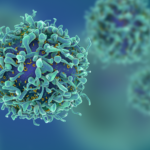A decade ago, the emergence of new immunotherapies in the cell and gene therapy (CGT) space opened up new avenues to treat disease, sparking excitement across the industry. However, the path to commercialization has been a steep learning curve for both companies and regulatory agencies given the uncharted waters of these new modalities. Now that eight CGT treatments have been approved in the United States, stakeholders on both sides of the regulatory equation have gained a tremendous amount of insight into which factors are important to ensure product safety and efficacy. Increased regulatory scrutiny is expected for new products advancing through a strong clinical pipeline. Companies need to be prepared to keep pace with these changing requirements or face the risk of unexpected delays.
The Importance of Clinical Grade Biomaterial
Cell and gene therapy end-products must adhere to GMP standards and the raw materials used in the manufacturing process—from the patient (autologous) or donor (allogeneic) to final drug product (i.e., excipients)—must also satisfy the necessary FDA regulatory criteria. High quality clinical grade starting materials are essential for an approved CGT product, yet few suppliers in the industry can provide these materials with the level of compliance needed for therapeutic use. While some suppliers claim to offer GMP products, closer inspection reveals that they fall short of the FDA-required regulations. Substituting biomaterials down the line with ones that do meet regulatory guidelines to support clinical trials and commercialization stages can result in costly setbacks and delays.
AllCells’ experience supporting industry-leading companies across the globe to advance their CGT programs has cultivated a deep understanding of the key drivers of success. This has inspired the continual advancement and improvement to our Good Manufacturing Practices (GMP) clinical grade product portfolio, donor services, project management, and quality management systems (QMS). Together, these changes strengthen and expand our ability to support seamless clinical translation and rapid commercialization of CGT candidates while adapting to evolving regulatory guidelines and standards.
How Experts Recruit, Qualify, and Manage Donors
Both donor qualification and management are essential to obtaining high-quality and regulatory compliant cells for CGT product development. However, finding donors that are eligible for clinical donation who are reliable, recallable, and have the right attributes requires expertise and experience. This is often a limiting factor to the speed that a program can progress through a company’s investigational pipeline.
To help developers overcome this roadblock, AllCells has developed a proprietary system designed to meet both short- and long-term goals for a variety of investigational programs across the CGT industry. AllCells’ donor management services combine the proprietary Donor Management System (DMS), techniques, and knowledge cultivated over more than two decades of operational experience to find donors with desirable attributes within a large and highly characterized donor pool. After recruitment, donors undergo extensive viral and health screening protocols (AABB and Zika Health History Questionnaire and physical exam) in compliance with FDA 21 CFR 1271 Subpart C, CDC, NIH, and AABB requirements to qualify for clinical grade GMP donations.
If a project has specific donor criteria beyond the standard GMP requirements, such as additional donor attributes or screening needs, AllCells’ donor management team can create customized solutions and dedicated donor pools to ensure a high conversion from donor identification to successful collections. Years of expertise has equipped the team to strategically recruit potential donors and determine the number of donors that must enter the screening funnel to achieve the end collection goals (i.e., based on the desired donor attribute and its frequency in the population). The team engages in active monitoring and engagement to foster reliability and recallability throughout a project’s lifecycle, minimizing donor variability and ensuring supply chain continuity.
Quality Systems That Support GMP Production
As a GMP supplier, AllCells has a robust quality management system (QMS) consisting of process and production controls, training, standardized protocols, change management, and equipment validation/qualification programs to ensure the quality and consistency of all our products. With operational oversight, adherence to FDA and GMP regulations, as well as accreditations and licenses that meet state and federal compliance, these pillars create a robust GMP infrastructure within which we operate to ensure critical aspects of tissue processing, product manufacture, testing, and delivery meet predefined GMP standards.
AllCells’ GMP products are collected at FDA-registered, AABB-compliant, IRB-approved centers located across the US by highly trained clinical staff. Adjacently located facilities equipped with clean room environments are used for GMP products that require cell processing after donor collection. A robust environmental monitoring program is used to control the aseptic conditions and ensure compliance during manufacturing operations. All products undergo extensive quality testing and extended GMP documentation prior to batch release ensuring regulatory compliance and quality standards are met. Validated shipping containers (Aerosafe or Cryoport) are used to safeguard product integrity in transit from our facilities to yours.
Harmonized processes and protocols are used for both RUO and GMP materials, which means we can support the entire continuum of CGT development. Making early process- and material-selection decisions that impact manufacturing can be critical to successful clinical translation; therefore, access to GMP starting materials early in development can help streamline and expedite the movement of potential therapeutic candidates through the pipeline.
Figure 1. highlights some of the differentiating features in donor screening, product quality testing and batch documentation associated with our GMP products compared to their RUO counterparts.

GMP Product Portfolio
Since 2016, AllCells has more than doubled its GMP product portfolio with more additions planned soon to meet the diversifying needs of our clients.
While our standard GMP portfolio works for many CGT programs, we understand that there is no “one size fits all” solution, which is why we have a dedicated team to work with our CGT partners as they navigate their GMP needs. There are many challenges across the CGT lifecycle and the industry is continually changing as expertise and knowledge grows. Having an experienced GMP supplier with skill set and systems in place to meet the donor, regulatory and timeline requirements can increase the probability of success and head off costly surprises that could cause an untimely demise for a promising CGT candidate. Our customizable and scalable GMP solutions are a strategic advantage for developers to stay ahead of the curve in CGT space.




